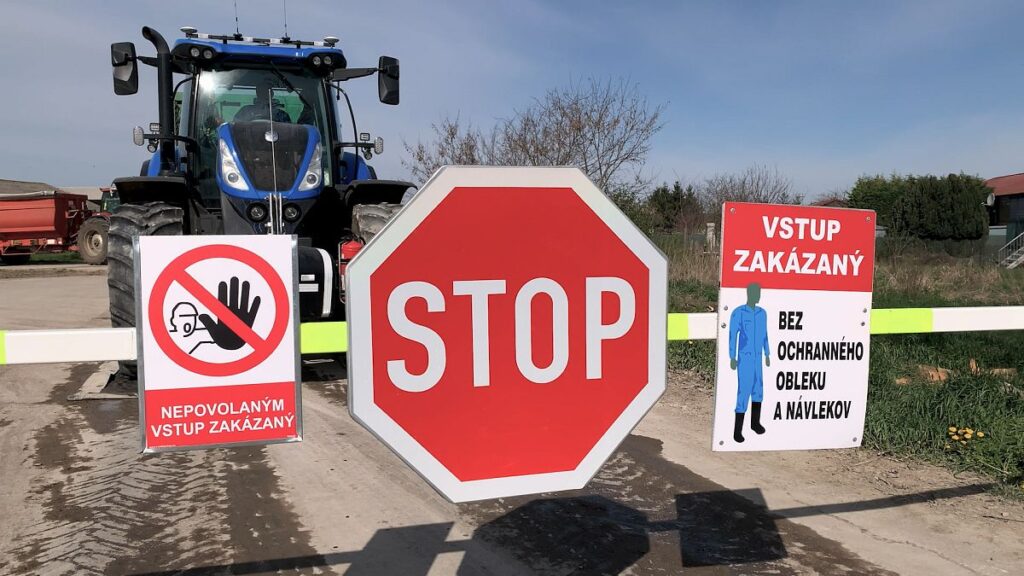Foot-and-mouth disease is a viral disease that primarily affects cattle, sheep, goats and pigs. The disease poses no threat to human health, but infected animals suffer great pain, and their production of milk or meat is reduced. Most animals survive the infection, but may carry the highly contagious virus for a long time — hence the need to rapidly contain any outbreak through quarantine and the culling of both infected and healthy animals.
The EU has an extensive legal framework to control outbreaks, including trade restrictions on susceptible animals and their products. All Member States are obliged to have contingency plans. Cutting-edge state-backed laboratories must collaborate with the EU Reference Laboratory so that experts can help define the best emergency measures for each outbreak. The resulting culling and trade restrictions often cause heavy economic losses across the farming sector. Affected Member States can ask for EU compensation funds to be provided after the total costs suffered by the farmers and the sector’s supply chain have been calculated.
In Slovakia, the foot-and-mouth virus has so far been detected on at least six farms, and between 6,000 and 7,000 animals have been culled to date. Hundreds of farms are under strict surveillance and undergoing disinfection.
Just outside the perimeter of the affected area, Agrocontract Mikulas dairy farm has so far been spared from the disease. But the potential detection of a single virus inside would mean the sacrifice of its 6,000 animals, including 3,000 dairy cows. Every year the farm produces some 35 million litres of milk. It employs 200 staff and is a key employer in this mainly rural area of Slovakia.
Access is restricted. Workers and machinery entering are subject to strict disinfection procedures.
“We are spraying the wheels of all the trucks. Employees who come in have to go through a clean and dirty zone and take showers a couple of times a day,” explains farmer and owner of the agribusiness Martin Zahumenský. “It’s very stressful. Every time I get a call from [another] farm, we expect bad news and to be honest, I can’t sleep very well. We are very worried about the business.”
Their agricultural activity includes 5,500 hectares of fields where corn, soybeans, and wheat are grown, mainly as food for dairy cows, the cornerstone of their whole agribusiness.
The farm is a family business founded 30 years ago by Martin’s dad. They have watched with increasing anxiety how the virus has destroyed other farms in the region.
“I really feel for those who have been impacted,” says Marian Zahumenský, farmer and CEO of the farm. “One of the farms affected is a member of the same breeders’ association as us; we work very closely together. I can imagine the tragedy that befell them; I relate deeply to the people who built and cared their whole herd. It was a huge amount of effort and years of work.”
“All the farmers are affected economically by the current situation because they have to spend a lot of money on disinfection and all kinds of biosecurity measures,” explains Martin. “So in the first place, the government should refund them and help them to cover these costs. And in cases of farms where they have had to kill all their animals, they have to refund these losses very quickly, because without… help from the government, without help from the European Union, these farms will not be able to start running again.”
In efforts to contain the spread of the foot-and-mouth virus, some border crossings between Austria and Hungary have been closed. Others, between Slovakia and neighbouring Hungary and the Czech Republic are being carefully controlled.
Since the start of the crisis, the State Veterinary Institute of Olomouc in the Czech Republic has received milk samples from 57 farms around the affected area in Slovakia, twice a week.
These analyses are crucial to control the potential spread of the disease across the EU.
The virus is calamitous for animals and farm production, but does not normally affect people, the lab’s director insists: “Milk that has undergone pasteurisation and meat that has undergone the maturation process, especially if it is still subsequently heat treated, is safe and does not endanger the health of consumers,” explains Jan Bardoň.
Is Europe properly prepared to prevent the spread of the virus across its open borders and common market?
“European cooperation is at a very good level,” replies Bardoň. “There is a rapid alert system whereby the veterinary authorities of each Member State are immediately informed. There is a single prevention strategy within the EU, but each country has to adapt it to its specific geographical or climate conditions, local resources or farm characteristics. There is, for instance, a difference if we are dealing with a farm with 10,000 cattle or a farm with five cows.”
The European Commission has just reminded affected Member States that emergency measures shall continuously be adapted to the evolving epidemiological situation.
Read the full article here

